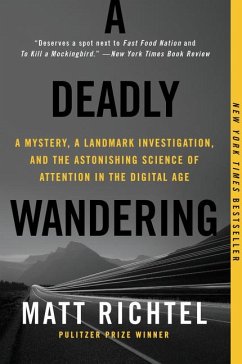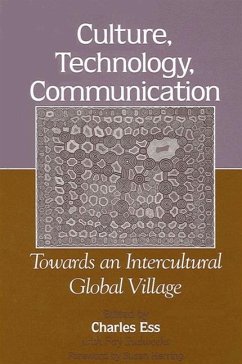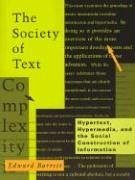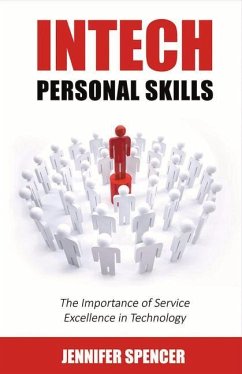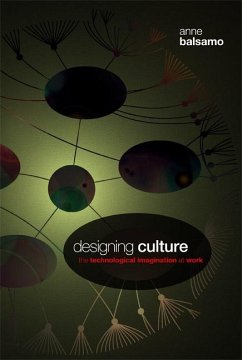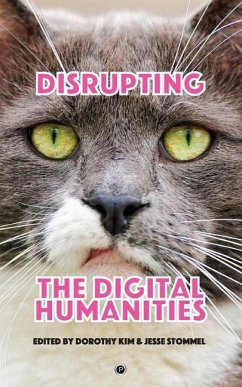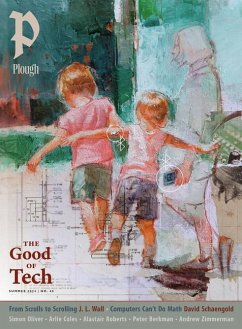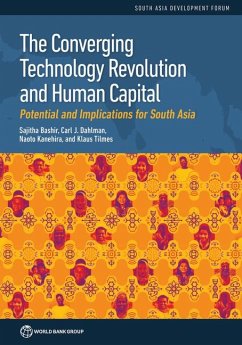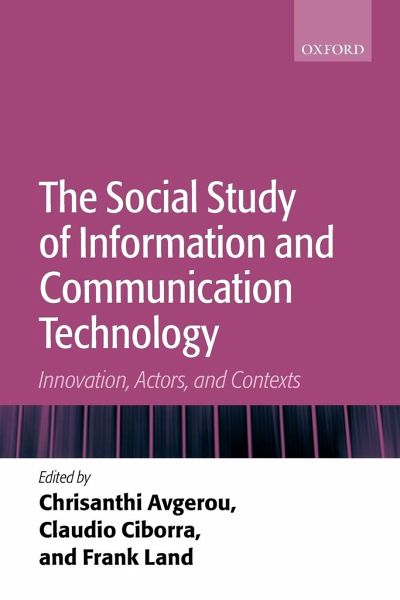
The Social Study of Information and Communication Technology
Innovation, Actors, and Contexts
Herausgeber: Avgerou, Chrisanthi; Land, Frank; Ciborra, Claudio

PAYBACK Punkte
38 °P sammeln!
This book is a useful text for advanced students of MIS and ICT courses, and for those studying ICT in related areas: Management and Organization Studies, Cultural Studies, and Technology and Innovation. As ICTs permeate every sphere of society - business, education, leisure, government, etc. - it is important to reflect the character and complexity of the interaction between people and computers, between society and technology. For example, the user may represent a much broader set of actors than 'the user' conventionally found in many texts: the operator, the customer, the citizen, the gende...
This book is a useful text for advanced students of MIS and ICT courses, and for those studying ICT in related areas: Management and Organization Studies, Cultural Studies, and Technology and Innovation. As ICTs permeate every sphere of society - business, education, leisure, government, etc. - it is important to reflect the character and complexity of the interaction between people and computers, between society and technology. For example, the user may represent a much broader set of actors than 'the user' conventionally found in many texts: the operator, the customer, the citizen, the gendered individual, the entrepreneur, the 'poor', the student. Each actor uses ICT in different ways. This book examines these issues, deploying a number of methods such as Actor Network Theory, Socio-Technical Systems, and phenomenological approaches. Management concerns about strategy and productivity are covered together with issues of power, politics, and globalization. Topics range from long-standing themes in the study of IT in organizations such as implementation, strategy, and evaluation, to general analysis of IT as socio-economic change A distinguished group of contributors, including Bruno Latour, Saskia Sassen, Robert Galliers, Frank Land, Ian Angel, and Richard Boland, offer the reader a rich set of perspectives and ideas on the relationship between ICT and society, organizational knowledge and innovation.





